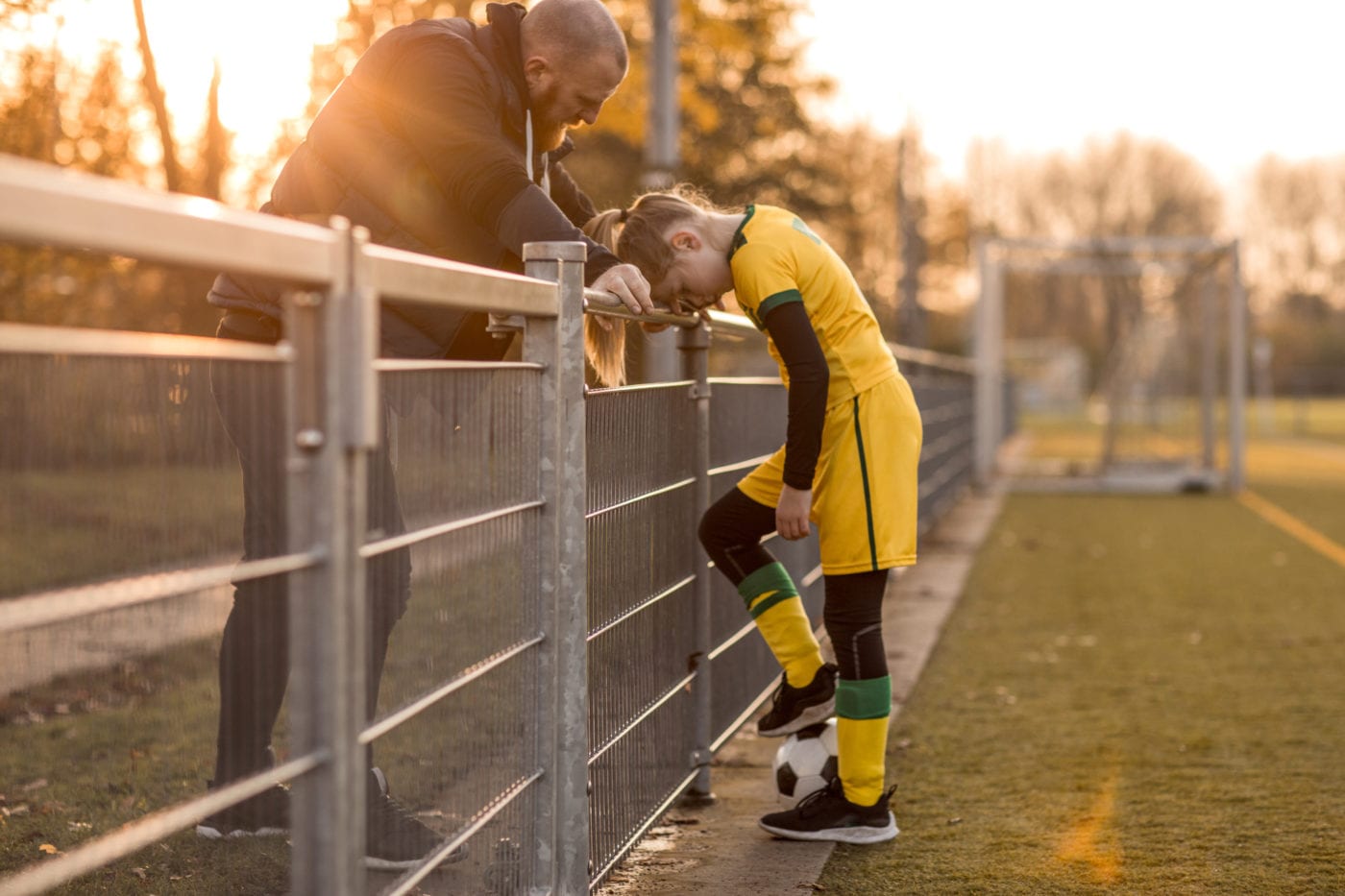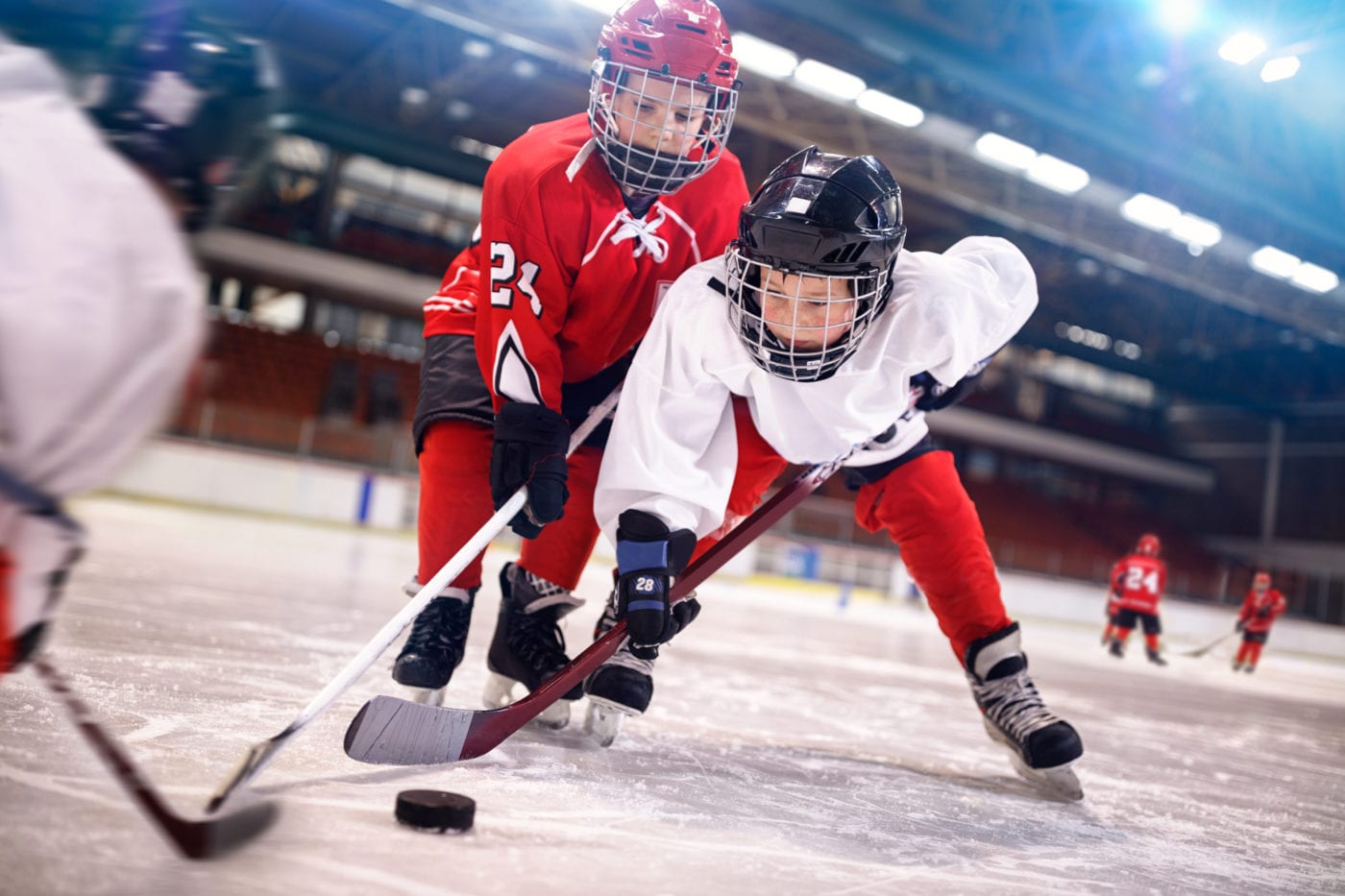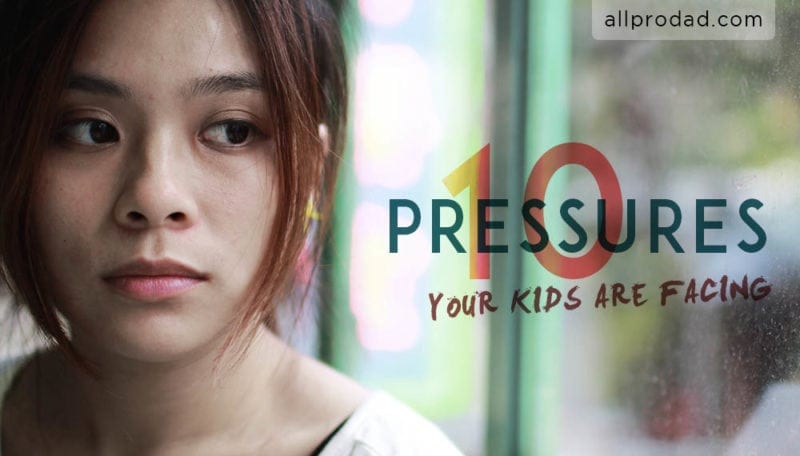At one of my daughter’s soccer games, a dad among all of us sports parents was not pleased with the coach’s decisions. He yelled suggestions across the field and at halftime, he marched angrily to the team’s bench and berated the coach in front of the team. The league director stepped in and threatened to have the dad removed if he didn’t remain in the spectator seating area. I’m sure the dad made some valid points, but these are 10-year-old kids in a rec league. The coach is a volunteer who stepped up because no one else had been willing to do it.
As dads, we invest an immeasurable amount of time, energy, and emotion into our kids. We always want them to succeed. Our emotional attachment to their success often becomes evident when they are in a competitive setting. Unfortunately, our behaviors as sports parents are not always what they should be. Here are the 5 worst things you can do at your kid’s competition.
1. Forget your role.
We often have experience and knowledge that we want to pass along to our sons and daughters. This is a great idea—in the right context. When our kids are playing in a game or performing at a recital, that’s not the right time for us to coach or judge. It’s best if we can remember that there are four roles at competitions: competitors, officials, coaches, and spectators. When we are spectators, we need to stick to that role. We should be there to support and encourage our kids and their teams from the stands.
2. Focus on your kid’s personal goals.
It is extremely important for kids (and adults) to have goals. Setting goals can be motivating, and working toward goals helps us to be the best we can be. However, when our kids are participating as part of a team, they commit to working with their teammates. When we focus on a kid’s individual goals, he or she can become torn between doing what’s best for the team and doing what you’re telling him or her to do. It can also lead to our kids developing a “me” attitude, which is especially damaging in sports, where coaches are consistently trying to develop a “we” culture.
3. Show negative emotion.
Our kids always want to make us proud. Any type of competition creates pressure. When they see us on the sideline reacting when they perform poorly, it only adds to the pressure that they are already feeling. They don’t need us to do that. Competitors need to focus on what they can control. When they see us reacting negatively to the things we cannot control, it distracts our kids and stresses them out.
4. Compare your kid to someone else.
Each kid is a unique person following his or her own path. You might be tempted to comment that your kid isn’t as fast as his brother was or that she doesn’t shoot as well as her teammate or that he hasn’t won as often as you did. When we make these comparisons to a sibling, a teammate, or ourselves, we are not being fair to either person. These comparisons can lead our kids to have unrealistic expectations. Plus, comparisons put unnecessary pressure on them. We communicate that it’s not OK for them to be them—that they have to be like someone else.
5. Coach your kid in the car.
The car ride home can be a tough time for kids. If they performed poorly, they may be feeling like they let down their teammates, their coaches, and you. The worst thing sports parents can do on the way home is make them relive their mistakes by telling them what they did wrong. You may have good advice and suggestions for them, but right after the game is not the right time for that. The best thing you can do on the way home is let them know that you enjoy watching them compete and that you are proud of their effort. If they want to talk about what happened, be willing to listen, but stay positive. Don’t criticize them, their teammates, or their coaches.
Sound off: What’s the worst thing you’ve seen sports parents do at a kid’s competition?











Huddle up with your kids and ask, “What is your favorite activity or sport and why?”